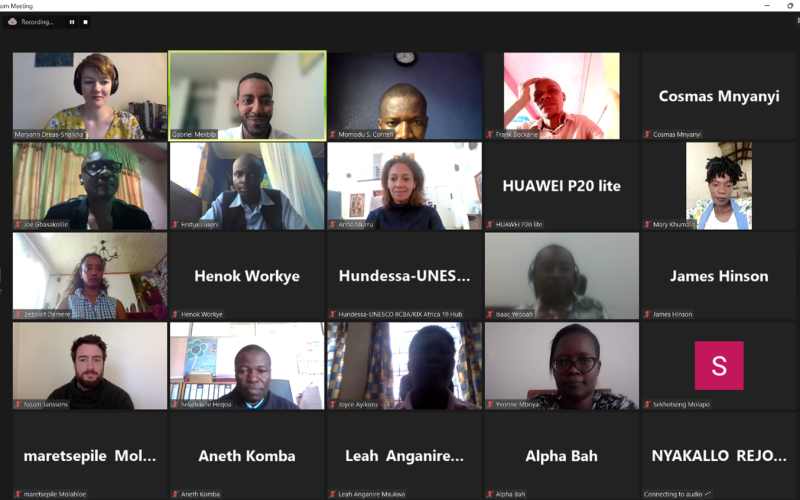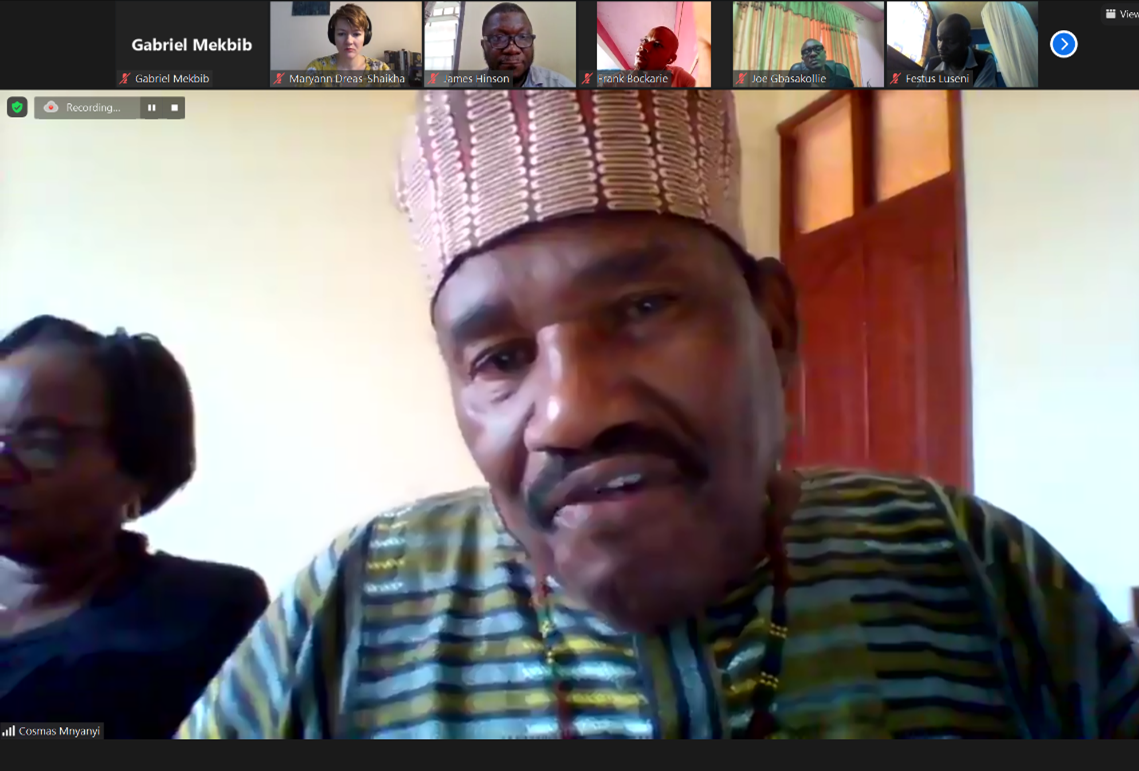
A recent World Bank report hailed the resilience of Kenya’s education system in weathering the turbulence caused by the global pandemic. Several reforms undertaken prior to the pandemic in “professional teacher development, textbook policy and management at the local level” are credited for student’s increased learning outcomes. As evidence, the report cited the improvement in graded mathematics assessments between 2015 and 2021.
Another reform also helped Kenya endure the storm of the COVID-19 pandemic. The report points to Kenya’s implementation of a national competency-based curriculum (CBC) in 2017 as a contributor to higher learning outcomes. It is within this promising framework of a learner-centered approach that members of the KIX Africa 19 Hub formed a community of practice (CoP) in CBC from June to July 2022.
More than 66 participants from fourteen KIX Africa 19 Hub countries participated in eight virtual two-hour sessions to exchange their and their countries’ experiences. Supplemented by hundreds of messages on WhatsApp, these conversations provide an insight on how educators in the region approach CBC.
Facilitated by teacher educators and curriculum developers from the Tanzanian Institute of Education (TIE), the sessions complemented and built upon the CoP spearheaded by the Africa Curriculum Association in 2021. Participants engaged with TIE experts on specific elements of CBC and then reflected upon a country case study presented by another participant as a group and in breakout rooms.
Defining CBC teaching approaches
So how did participants define CBC? According to Chrispen Mawarire, an Education Research Officer from the Ministry of Primary and Secondary Education in Zimbabwe, it is “a curriculum based on the development of learners’ competency skills which will enable them to survive in their communities.” Olive Mbuthi, an educational consultant from Kenya, further added that “Competency is not just for practicals but organizing learning experiences where the learner’s involvement is more- they ask the questions, they explore and find out the answers for themselves”. Participants generally agreed that CBC approaches provided for higher quality learning experiences as compared to more traditional outcome-based teaching approaches.
However, valid critiques of the implementation of CBC have pointed to the difficulty of effectively implementing CBC. These arguments state CBC is associated with higher learning costs and requires greater parental involvement – something that is not available to all students. Generally, the discussions also showed that Kenya’s national-level CBC policy was uncommon among Hub countries. Malawi, for example, “implements the outcome-based curriculum in primary and secondary schools” according to Leah Msukwa, a Senior Education Officer at the Ministry of Education in the country. As a result, many of the discussions on implementing CBC focused on individual or school-level approaches.
The role of frameworks in CBC approaches
Initial sessions focused on mapping core competencies and implementing CBC. When discussing the role of frameworks in CBC, Blessing Chabikwa, an Education Research Officer based at Zimbabwe’s Ministry of Primary and Secondary Education-Curriculum Development and Technical Services, shared that “lesson plans should show the concept to be covered, objectives of the lesson, competence to be developed, methods to be used, resources and media as well as time” with the TIE’s Fixon Mtelesi adding “for CBC it may not need to have teachers’ activities but rather, learners' activities.”
Acknowledging that “most teachers don't have the resources needed” John Balla, a Curriculum Development Officer from Sierra Leone’s Ministry of Basic and Senior Secondary Education, emphasized that “A lesson plan has to be brief and create practical activities for learners to grasp the concept.” Similarly, a teacher’s focus should be on the students. They should ensure “lesson plans…have activities learners are expected to carry out in every step,” remarked Nelly Machu, a Curriculum Development Officer at the Kenyan Institute of Curriculum Development.
 TIE's Dr. Enea and Dr. Fika sharing insights on CBC/UNESCO
TIE's Dr. Enea and Dr. Fika sharing insights on CBC/UNESCO
However, an in-depth case study on addressing professional teacher development revealed that even if teachers would like to utilize CBE approaches, they may not actually be prepared and able to carry out effective lessons. Acknowledging their critical role, Stephen Mwashihava, a curriculum developer with the TIE, noted that “teachers…are the principal interface between CBC and ‘solutions’ and student learning”. He cited a study from Tanzania that suggested pre-service teachers had higher perceptions of their own abilities to implement CBC as compared to their ability to explain CBC concepts during interviews. Stephen cited additional studies from Zambia and Kenya highlighting similar capacity gaps in teaching across the continent. To address these capacity gaps, Stephen emphasized the importance of teacher professional development programs to make teachers more effective particularly in low-resource contexts.
Practice of Community
These low-resource environments are circumstances many of the CoP members are familiar with. Over eight sessions participants shared their depth of experiences from integrating ICT in CBC to the role of experiential learning in secondary schools. Significantly, many of the participants from last year’s CoP returned to participate in this CoP, signalling the high value of the knowledge participants expect to gain and to share with each other.
Participant feedback supported this sentiment, with most participants (94%) finding the entire CoP either highly or very highly useful in post-session surveys. A participant from Lesotho further indicated plans to “Analyse [her country’s] curriculum and the syllabus development with the CBC frameworks and see if they can be applicable in teaching and learning of Lesotho's syllabi”. The depth of experiences and conversations exchanged reflect both the possibilities and challenges of employing CBC approaches as well as enabling the opportunity for individuals to continue practicing being a supportive and insightful community.
For more information on the KIX Africa 19 Hub, please visit our website housed on UNESCO IICBA’s website, and visit our digital repository to access resources used during the CoP on CBE as well as more than two hundred national and regional policies, research, and resources on teaching and learning, assessment, early childhood education, gender equity and inclusion, and the data challenge in education.
